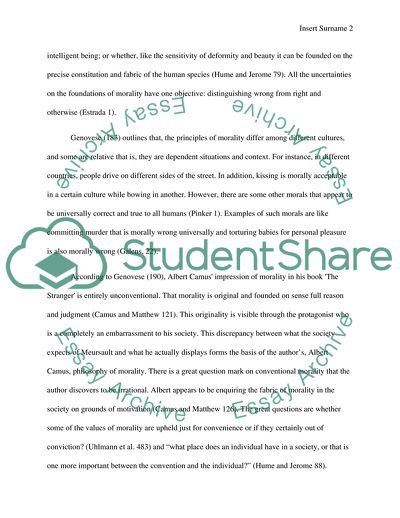Cite this document
(Principles of Morality in Relation to The Stranger by Albert Camus Book Report/Review, n.d.)
Principles of Morality in Relation to The Stranger by Albert Camus Book Report/Review. https://studentshare.org/philosophy/1847416-in-detailed-relation-to-a-book-discuss-one-or-more-of-the-principles-of-morality
Principles of Morality in Relation to The Stranger by Albert Camus Book Report/Review. https://studentshare.org/philosophy/1847416-in-detailed-relation-to-a-book-discuss-one-or-more-of-the-principles-of-morality
(Principles of Morality in Relation to The Stranger by Albert Camus Book Report/Review)
Principles of Morality in Relation to The Stranger by Albert Camus Book Report/Review. https://studentshare.org/philosophy/1847416-in-detailed-relation-to-a-book-discuss-one-or-more-of-the-principles-of-morality.
Principles of Morality in Relation to The Stranger by Albert Camus Book Report/Review. https://studentshare.org/philosophy/1847416-in-detailed-relation-to-a-book-discuss-one-or-more-of-the-principles-of-morality.
“Principles of Morality in Relation to The Stranger by Albert Camus Book Report/Review”. https://studentshare.org/philosophy/1847416-in-detailed-relation-to-a-book-discuss-one-or-more-of-the-principles-of-morality.


